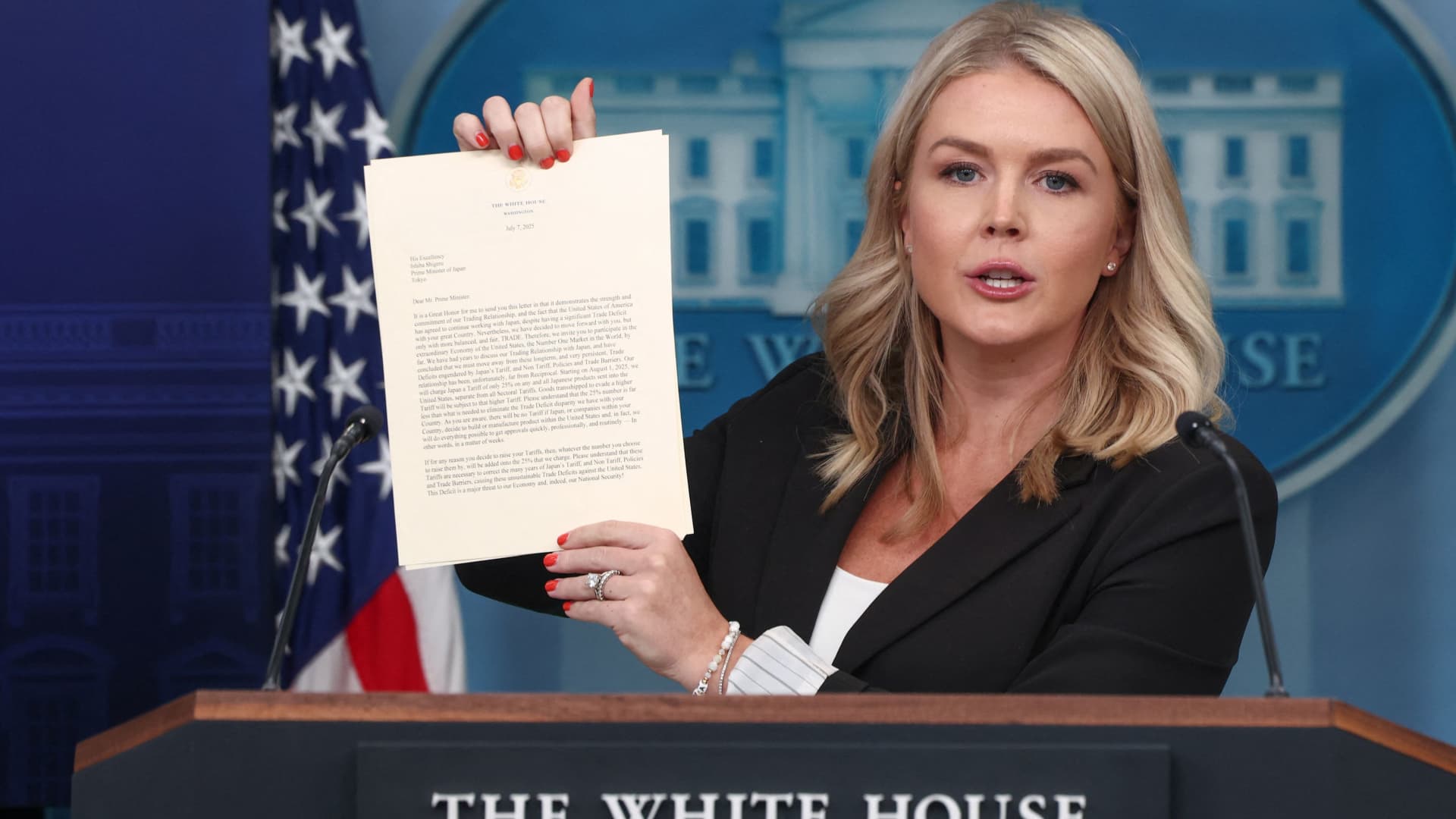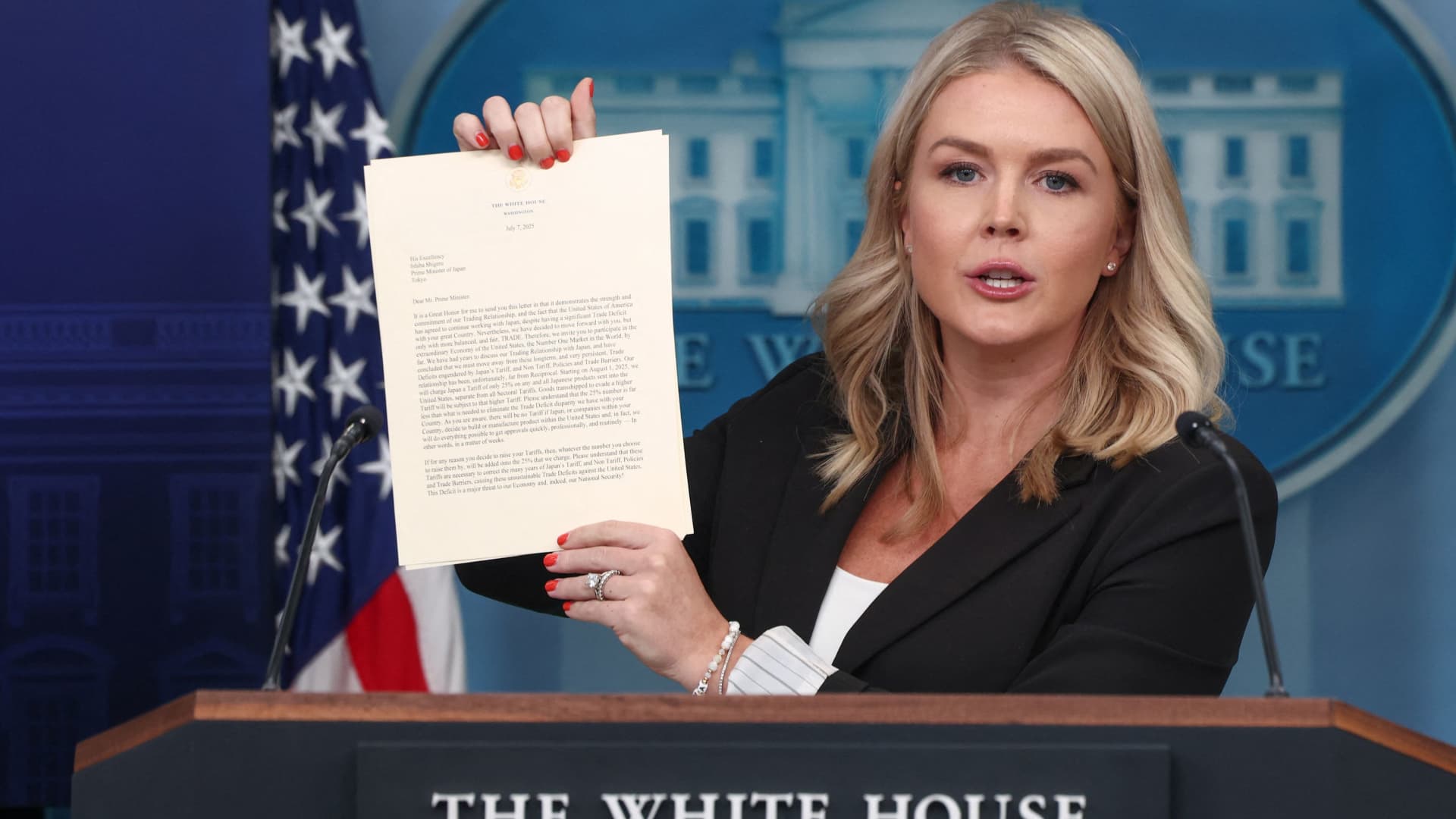In the intricate dance of international trade, a misstep can send ripples across global markets. Recent actions by the United States, specifically the tariff measures proposed by President Donald Trump, have put nations, including Japan, in a precarious position. The response from Japan has been one of disappointment and regret, coupled with a determination to navigate these turbulent waters through negotiation and strategic adaptation. This report delves into Japan’s reaction to Trump’s tariff policies, the potential implications, and the strategies Japan might employ to weather this economic storm.
A “Truly Regrettable” Situation
The immediate reaction from Japan to President Trump’s tariff announcements has been markedly negative. Prime Minister Shigeru Ishiba described the situation as “truly regrettable,” a sentiment echoed by various officials and business leaders. The proposed tariffs, including a blanket tariff on all countries and steeper penalties specifically targeting Japan, have raised concerns about the potential damage to the Japanese economy. The sense of disappointment stems from the fact that Japan, a key ally of the United States, finds itself facing trade barriers that could hinder economic growth and disrupt established trade relationships.
The proposed tariffs are not just a minor adjustment; they represent a significant shift in the trade landscape. The threat of tariffs as high as 24% or even 35% on Japanese goods looms large, creating uncertainty for businesses and potentially impacting consumer prices. This has forced Japan to reassess its trade strategy and consider measures to mitigate the negative consequences.
Understanding the Scope and Impact
To fully grasp the implications of Trump’s tariffs, it’s essential to understand the scope of the proposed measures. The tariffs are not limited to a specific sector or product; they encompass a wide range of goods, potentially impacting various industries in Japan. This broad application of tariffs creates a ripple effect, affecting not only exporters but also domestic businesses that rely on imported materials or components.
The impact of these tariffs extends beyond economics. They also have political and diplomatic ramifications. The imposition of tariffs on a close ally like Japan can strain relationships and undermine trust. It also raises questions about the future of international trade agreements and the role of the United States in the global economy. The tariffs have prompted widespread concern among nations that rely on free and fair trade and have led to a scramble to understand and respond to the changing landscape.
The Economic Fallout
The economic fallout from these tariffs could be substantial. Japan’s economy, heavily reliant on exports, could face significant challenges. The automotive and electronics sectors, which are major contributors to Japan’s GDP, are particularly vulnerable. For instance, Japanese automakers like Toyota and Honda, which have substantial manufacturing operations in the United States, could face higher costs and reduced profitability. Similarly, electronics giants like Sony and Panasonic could see their competitiveness eroded if their products become more expensive for American consumers.
Moreover, the tariffs could disrupt global supply chains. Many Japanese companies have intricate supply networks that span multiple countries. Disruptions in these networks could lead to delays, increased costs, and reduced efficiency. This could have a cascading effect, impacting not just Japanese companies but also their international partners and suppliers.
Negotiation as a Lifeline
Despite the disappointment and concern, Japan has remained committed to seeking a resolution through negotiation. Prime Minister Ishiba has stressed the importance of continued dialogue with the United States to reach a mutually beneficial agreement. This approach reflects Japan’s belief in the power of diplomacy and its commitment to maintaining a strong relationship with the United States.
Negotiation is not simply about avoiding tariffs; it’s about addressing the underlying issues that have led to these trade tensions. Japan is likely to focus on demonstrating its commitment to fair trade practices and highlighting the benefits of the existing trade relationship with the United States. The goal is to find common ground and develop a framework that promotes economic growth and stability for both countries.
Strategies for Survival
Beyond negotiation, Japan must also develop strategies to mitigate the potential impact of the tariffs. These strategies may include:
- Diversifying export markets: Reducing reliance on the United States by exploring new markets in Asia, Europe, and other regions.
- Strengthening domestic demand: Boosting internal consumption to offset any decline in exports.
- Supporting affected industries: Providing financial assistance and other forms of support to businesses that are negatively impacted by the tariffs.
- Investing in innovation: Enhancing competitiveness by investing in research and development and promoting technological advancements.
- Seeking alternative trade agreements: Exploring opportunities to join or create new trade agreements with other countries.
By implementing these strategies, Japan can enhance its resilience to external shocks and maintain its economic competitiveness in the face of challenging trade conditions.
The Global Perspective
Japan is not alone in its concerns about Trump’s tariff policies. Many countries around the world have expressed similar worries about the potential for trade wars and the disruption of global supply chains. The tariffs have prompted a broader discussion about the future of international trade and the need for a more cooperative and rules-based system.
The response from the international community will be crucial in shaping the outcome of this trade dispute. If countries work together to uphold the principles of free and fair trade, they can mitigate the negative impact of the tariffs and promote a more stable and prosperous global economy.
A Fork in the Road
The current trade tensions between Japan and the United States represent a critical juncture. The decisions made in the coming months will have far-reaching consequences for both countries and the global economy. If Japan and the United States can find a way to resolve their differences through negotiation and compromise, they can reaffirm their commitment to a strong and mutually beneficial relationship. However, if the tariffs remain in place, the impact could be damaging, leading to reduced trade, slower economic growth, and strained diplomatic ties.
Weathering the Storm, Emerging Stronger
As Japan navigates this complex and challenging situation, its ability to adapt and innovate will be crucial. By pursuing a combination of negotiation, strategic diversification, and domestic reforms, Japan can weather the storm and emerge stronger and more resilient. The path ahead may be uncertain, but Japan’s commitment to free trade, international cooperation, and economic growth will guide its efforts to overcome these challenges and secure a prosperous future. The journey is fraught with peril, but with careful navigation and a steady hand on the helm, Japan can steer through these turbulent waters and emerge into calmer seas.












